Imagine, if you will, that fate has imbued you with extraordinary power. Would you use that power responsibly? Would you even know what “responsibly” means? It’s easy to set out with the best of intentions, only to discover too late one has fallen into profound error. Consider these five novels.
Fire-Hunter by Jim Kjelgaard (1951)
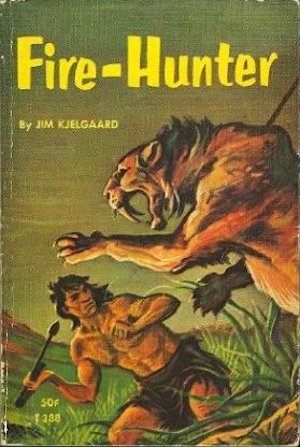
The designated spear-maker for his small and extremely conservative Stone Age tribe, Hawk chafes at the restrictions placed on him. Other men may go hunting but not Hawk, whose skills are deemed far too important to risk. After all, the tribe lives on the knife-edge of extinction. Losing Hawk—and, more importantly, the spearheads he provides—could mean the difference between marginal survival and obliteration.
Unfortunately for Hawk’s tribe, Hawk is not just a talented spear-maker. He is also a would-be innovator. Thus, confronted with a new way to throw spears—what modern people might call an atlatl—Hawk does not let the fact he has not worked out all the details deter him from trying to put the new technology to use. Thus, one tribesman slain by an irate rhinoceros; thus, exile for Hawk.1
***
Voyage of the Shadowmoon by Sean McMullen (2002)
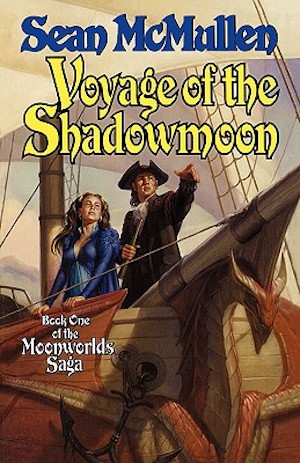
The Emperor Warsovran is determined to add the city of Larmentel to his empire. Unfortunately for Warsovran’s ambitions, his soldiers learned siege craft from the scholars of Larmentel. The scholars kept their best secrets and stratagems for themselves. Not to worry, because the Emperor has a trick up his sleeve.
With much effort and at the cost of many lives, the ambitious Warsovran has managed to recover an ancient weapon called Silverdeath. Silverdeath does not come with an instruction manual—if it did, one might be told “under no circumstances use this cursed weapon”—and so, Warsovran and his closest advisors make a number of understandable, but fatal, errors. In very short order an entire continent is incinerated. No worries! Warsovran survived. Perhaps he will have more luck using Silverdeath on another, as yet to be incinerated, continent! Or perhaps not.
***
Vicious by V.E. Schwab (2013)
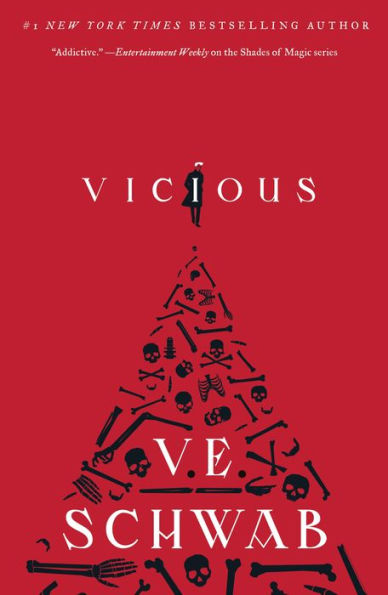
Utterly convinced (despite the absence of concrete evidence) that ExtraOrdinary (EO) people—superhumans, to you and me—exist, ambitious college students Eli and Victor set out to determine how to artificially induce EO abilities. While trigging superpowers turns out to come with a good chance of simply killing the test subjects, neither Eli nor Victor are much inconvenienced by professional ethics or even ordinary caution. Victory is therefore assured!
Eventual success imbues both young men with abilities far beyond human ken. While Eli’s power of regeneration is self-focused and not immediately dangerous to others, Victor’s powers lend themselves to inadvertent misuse. Indeed, almost the first thing Victor does with his new power is accidentally kill Eli’s girlfriend Angie. The consequence? A vendetta of epic proportions.
***
Dead Dead Demon’s Dededede Destruction by Inio Asano (2014 onward)

Koyama Kadode was the designated outcast of her school class; Nakagawa “Ontan” Ouran was her only friend of note. Her only human friend, that is. And then…Kadode and Ontan befriend an alien scout accessing Earth on behalf of his vastly superior civilization. In one timeline, at least, the essentially good-natured girls ensure humanity does not, despite its many flaws, make too terrible an impression.
Their off-world buddy shares with his terrestrial pals a few minor trinkets. Why not? How much harm could come of providing someone with the means to fly, an invisibility cloak, and a handheld tractor/pressor beam? Well, if that someone happens to be a young girl with an exaggerated sense of righteousness and a poor grasp of consequences, the outcome could be tragic for multiple Earths.
***
Burning Roses by S.L. Huang (2020)
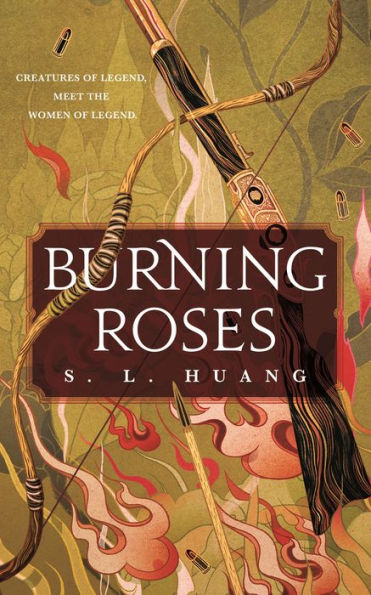
Rosa was also raised by a mother who was quite prejudiced where grundwirgen are concerned. The term “grundwirgen,” as used by most speakers, covers all entities who can take on animal form, entities that can be good or evil. As far as Rosa’s mother was concerned, all grundwirgen were inherently evil. When Rosa’s grandmother was murdered by a grundwirgen, that seemingly confirmed Rose’s mother’s claims. This made Rosa the perfect homicidal patsy for alluring sociopath Goldie.
Rosa, a skilled hunter, set out to rid the world of these dread beings. The consequences for the grundwirgen unfortunate enough to cross Rosa’s path were…unfortunate. Rosa would eventually come to realize the error of her ways, but far too late to save some treasured relationships. All she can do now is spend her life making such amends as she can.
***
No doubt for every example I can think of, you can think of one hundred. Feel free to populate the comments with all the works I overlooked.
In the words of Wikipedia editor TexasAndroid, prolific book reviewer and perennial Darwin Award nominee James Davis Nicoll is of “questionable notability.” His work has appeared in Publishers Weekly and Romantic Times as well as on his own websites, James Nicoll Reviews and Young People Read Old SFF(where he is assisted by editor Karen Lofstrom and web person Adrienne L. Travis). He is a four-time finalist for the Best Fan Writer Hugo Award and is surprisingly flammable.
[1]Exile turns out okay for Hawk, who perfects the atlatl before inventing lighter throwing spears, fletching, canine domestication, the bow and arrow, and poisoned arrows. He does pretty well for himself; his tribe doesn’t fare as well.










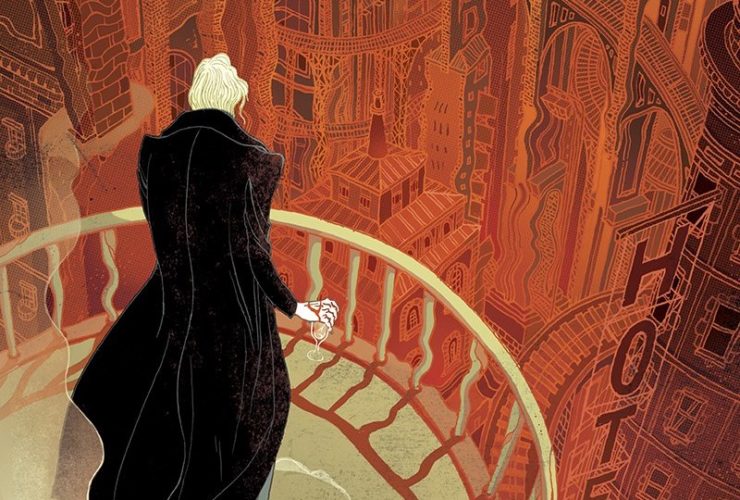
I think Jerome Bixby’s It’s a Beautiful Day is the perfect short story for this premise.
In longer works, the web novel Worm has numerous examples of people abusing and misusing their powers.
And there are a good few examples in Sandman and its spinoffs. e.g. Condemning your girlfriend to Hell for a few eons because she wanted to leave you, then not apologising properly, is not a good move, even for an anthropomorphic personification.
Marcus Rowland@1: ‘It’s a Good Life’, I think. It was the basis of the famous Twilight Zone episode.
A 2000 expanded reprint of Fire-Hunter, The Hunter Returns, alternates the original chapters with new chapters by David Drake that tell how 3/4 of the tribe gets killed while Hawk is gone.
https://david-drake.com/2000/the-hunter-returns/
“Kjelgaard gives the size of the tribe when Hawk leaves it: over thirty, as I recall. When the starving survivors meet Hawk again, there are only seven of them left. I had seven chapters to reduce the numbers by three quarters. That isn’t as easy as it might seem, but I’m a professional.
The trick was to avoid repetition; that is, I didn’t want to have dire wolves kill people in more than one chapter. Also, I didn’t want to use the animals over which Hawk himself was triumphing. Kjelgaard had taken most of the good ones: mammoths, sabertooth tigers, cave bears, and poisonous snakes.”
Honestly… I’m here for the footnotes.
Warsovran = “War Sovereign”?
Is this the only Jim Kjelgaard book ever cited on Tor.com? I guess Judith Tarr could mention some of his books in her SFF Equine series. (Goes off to reread Cracker Barrel Trouble Shooter)
Ursula Le Guin’s The Lathe of Heaven, where a well-meaning psychologist remakes reality day after day, with disastrous effects.
Completely off-topic, but I think Mr. Nicoll will be interested in this from PCMag
Nathan Brazil burns his way through several universes in pursuit of his stated ambition to stop being the most powerful being in existence (Well World saga by Jack Chalker). However much he whines and complains about the job he seems reluctant to actually quit though. Unreliable narrator much?
It’s been decades, but I seem to recall how the woman Hawk took along, while she came up with some ingenious hacks, remained decidedly secondary. Nice cover, though.
From the footnote, it sounds like Hawk could grace another “five books about…” list, featuring prehistoric characters who Single-handedly Invent Everything. A list to be headed by Ayla of The Clan of the Cave Bear.
Modern people over here call them woomera. You know, like the RAAF and NASA https://en.m.wikipedia.org/wiki/RAAF_Woomera_Range_Complex
In Nine Princes In Amber, Corwin and Bleys seek out alternate universes where their likenesses are worshipped as literal gods, in order to recruit troops for a desperate nvasion of the one true world, Amber. Corwin admits he’s exploiting the poor bastards, in selfish hope of seizing the throne for himself.
I just love Sean McMullen’s work: the Greatwinter trilogy and The Moonworlds Saga, of which Voyage of the Shadowmoon is the first volume. I wish he’d go back to writing solo novels again. Apparently, his novels co-written with Paul Collins aren’t available in the US.
I didn’t realize anyone else had ever heard of Fire-Hunter. I found it in my *father’s* collection of cheapo SF decades ago.
@7
Ursula Le Guin again: A Wizard of Earthsea is all about a novice wizard who taps into too much power too soon, and what he must do to deal with the consequences.
“The Reckoners” series (Steelheart” etc.) from Brandon Sanderson. A cosmic event gives a number of people on Earth superpowers. The problem: Using those powers makes them evil. All of them. So they basically destroy civilization by fighting the normal humans and each other and then rule over the resulting wasteland.
NomadUK@2: You’re right of course, this is what I get when I’m sure I remember a title and don’t check it… One of the perils of my advancing years.
@@@@@ 7: Great choice! I agree with every word you wrote.
@@@@@ 11. Saavik – “Hawk could grace another ‘five books about…’ list, featuring prehistoric characters who Single-handedly Invent Everything. A list to be headed by Ayla of The Clan of the Cave Bear.”
Not forgetting The Evolution Man
https://bookramblings.blog/2019/10/01/the-evolution-man-roy-lewis/